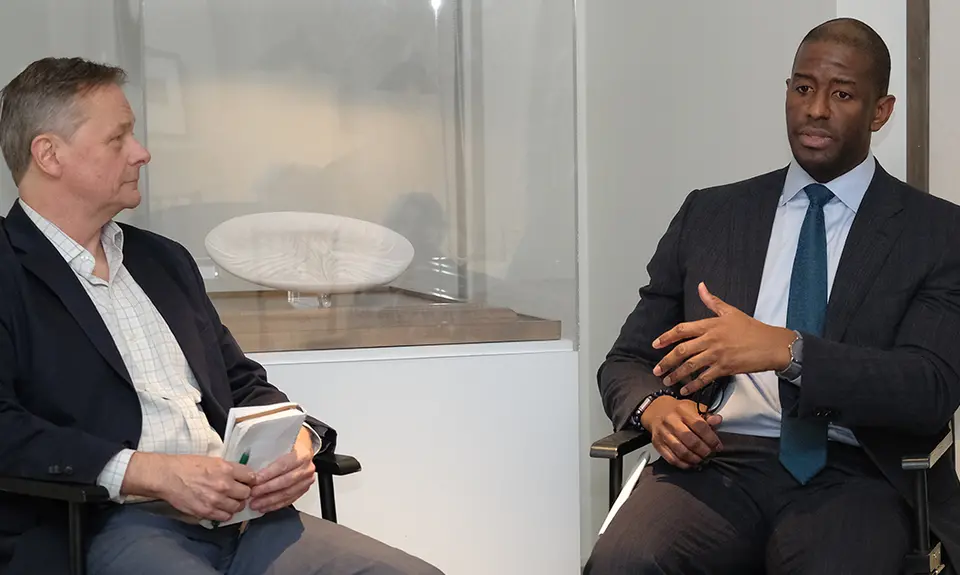A new PFAW Right Wing Watch report on voter suppression, released today, reveals the grand sweep of the right-wing national project to suppress the hard-won right to vote of Americans across the country—a project that accelerated as backlash to the outcome of the 2008 presidential election. Voter enthusiasm surged that year as Barack Obama campaigned to become our country’s first African American president. His efforts paid off – and the electorate that year set new records for being the largest and most racially and ethnically diverse in U.S. history.
The tidal wave of voter participation in 2008 sparked a renewed commitment by the Right, which had secured its takeover of the Republican Party, to keep political power out of the hands of African Americans, Latinos and young people – the most likely Democratic voters. The rise of the Tea Party in 2010 gave Republicans in the South and industrial north party control – and the 2013 Supreme Court decision Shelby County v. Holder gutted the Voting Rights Act, widely considered the “crown jewel” of the civil rights movement. And since Trump took office in 2017 – a chilling example of the consequences of voter suppression tactics – Republicans have continued to devise subtle but equally dangerous new ways to disenfranchise voters.
The report, written by journalist Bob Moser, details the development and evolution of the GOP’s voter suppression efforts in the Trump era, and the ways that progressive voting rights activists are fighting back. The report was previewed on November 14 at an event in Manhattan, where Moser and PFAW Senior Fellow Andrew Gillum joined a group of supporters and voting rights advocates for a conversation on voter suppression in the Trump era.
;feature=youtu.be
At the event, Moser shared that he began reporting on politics after the 1990 state Senate race in North Carolina, where he lived. That year, the North Carolina GOP went to extensive lengths to suppress the African American vote in the state on behalf of incumbent Jesse Helms, who ran that year against Democrat Harvey Gantt. Moser said, “Gantt was leading in the polls all the way until Election Day … But what I saw in Durham, North Carolina on election night as a young reporter was hundreds of people standing in line in African American districts waiting to vote at 11 p.m. ... from there, I began looking into the history of voter suppression.”
Moser commented to Gillum that “in 2018, I felt a certain way when I was reporting on your race and Stacey Abrams’ race and so many others, that I was almost seeing some déjà vu.” In response, Gillum discussed the outcome of his 2018 gubernatorial race in Florida, a battleground “1 percent state” where “Barack Obama won the state twice by one point, Trump won the state by one point, the last four Democratic nominees for governor all lost by one point, and in my case, we lost by 0.4 percent.”
Gillum noted that despite his loss, “we broke and shattered every record for midterm elections,” particularly among registered voters who did not vote in the 2016 presidential election. “Black voters, for the first time, voted at their share of the population,” Gillum continued, and helped secure the passage of Amendment 4 in Florida." The amendment was a ballot measure, approved by Florida voters, that restores the voting franchise to formerly incarcerated citizens who have served sentences for felonies. Gillum explained it as “the single largest enfranchisement of voters in a generation.”
Moser shared that he also saw some reason for optimism, including the surge of advocacy groups, some of them recently formed, fighting voter suppression and a growing number of legislative actions to protect voting rights. “There is a backlash to the backlash … I saw a stat yesterday that in state legislatures this year, so far there have been over 700 voting rights expansion bills,” Moser observed.
As we head into 2020, progressives must continue to be vigilant in spreading the word and fighting back against these oppressive attacks. Read the report here for more information on how Republicans are targeting voters in the Trump era – and how local organizers are fighting back to put political power back in the hands of the people.
